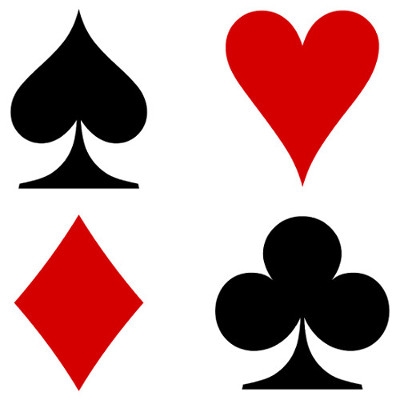Back to Basics Continued - Bridge
In my last article in ESRAmagazine I had decided to eschew some of the more esoteric aspects of declarer play like end-plays and squeezes and get back to basics. In the same vein, I have included another two deals below taken from my repertoire of tutorials. In both you are asked to plan your play so as to give yourself the greatest chance of fulfilling the designated contact. Once again, neither hand requires any particular expertise.
However, both require some careful planning and analysis as mundane as they may first appear to be. As in my previous article, you can assume that the opponents' distributions are benign, neither defender having a singleton or void in any suit.
Deal 1: You open the bidding with 1NT. With both opponents remaining silent, you respond 2SP to partner's 2CL Stayman enquiry, which partner raises to game. West leads the §Q, top of a sequence of honors.
| North ♠ 1 0 6 4 3 ♥ A J 9 ♦ A 6 5 3 ♣ 82 South (You) ♠ A 7 5 2 ♥ Q 1 0 8 ♦ K 4 ♣ A K 7 3 |
| When dummy comes down, you see you have 5 potential losers, two more than you can afford: 2 losers in spades, even with the benign 3-2 split; one in hearts – you should assume the ♥K is offside; and 2 in clubs. You can eliminate your two club losers by ruffing them on the table and you have sufficient entries to your hand to negotiate this but there is a catch: If you don't draw some of the opponents' trumps, you risk the chance of them making their high trumps separately and scoring 3 tricks in spades rather than the 2 you accounted for. On the other hand, if you play the ♠A followed by a small one, the opponents will win and play a third round of trumps leaving dummy with only one trump and depriving you of the ability to ruff 2 clubs. |
Fortunately, there is an iron-clad solution to the dilemma: After winning the opening lead with your ♠K in hand, play a small trump from both hands, conceding the first of the trump tricks due to the opponents anyway. Win the return and now cash the §A, drawing a second round of trumps and leaving 2 spades in dummy for the club ruffs and a single trump with the opponents which they can use anytime to score their second and last trump trick.
Deal 2:
| North ♠ K Q J ♥ K 6 5 ♦ 10 8 5 4 2 ♣ A 7 South (You) ♠ 10 9 8 5 2 ♥ A 8 4 3 ♦ 7 6 ♣ K 4 |
| East deals and the following bidding sequence leaves you as declarer in a contract of 3Sp: |
| East | South | West | North |
| Pass | Pass | 1♣ | Double |
| 2♣ | 2♠ | Pass | Pass |
| 3♣ | 3♥ | Pass | 3♠ |
| Pass | Pass | Pass | . |
West leads the ♣3 and when dummy comes down, you see you have 5 potential losers: 1 spade, 2 hearts and 2 diamonds. This hand looks deceptively easy. If hearts break 3-3 you have only 1 loser in that suit, not 2. Alternatively, you can play to set up dummy's long diamonds. If that suit breaks 3-3, you can establish 2 diamond tricks on which to discard both losing hearts from your hand and bring home the contract with an overtrick. Dummy appears to have sufficient entries so, even if diamonds are 4-2 (50% more chance than 3-3), you will have a parking space for at least one heart. Following that line of thought, you win the first trick with the ♣K in your hand, leaving the ♣A in dummy for an extra entry to the table and play a trump towards the table. Oh dear, West wins the ♠A and plays another trump. From dummy you play a diamond, but the opponents win this trick and play a third round of spades. You play another diamond which the opponents win and play a club to dummy's ♣A. Again on the table, you play a diamond and ruff it in hand, but when that suit breaks 4-2, you no longer have enough entries to the table to both trump a fourth round of diamonds and enjoy the established fifth card in that suit. When hearts also fail to break 3-3, you end up one trick shy of the contract. You fare better if you do not play trumps initially and rather lead a small diamond at trick 2. However, a much simpler solution is to win the opening club lead on the table, cash two high heart tricks and play a third round in that suit. If the hearts break 3-3, well and good. If not, the opponents have no way of stopping you using the ♣K entry to your hand to trump your fourth heart on the table. You still have sufficient high spades in your hand to take care of the opponents' trumps.
Great game, isn't it?








Comments